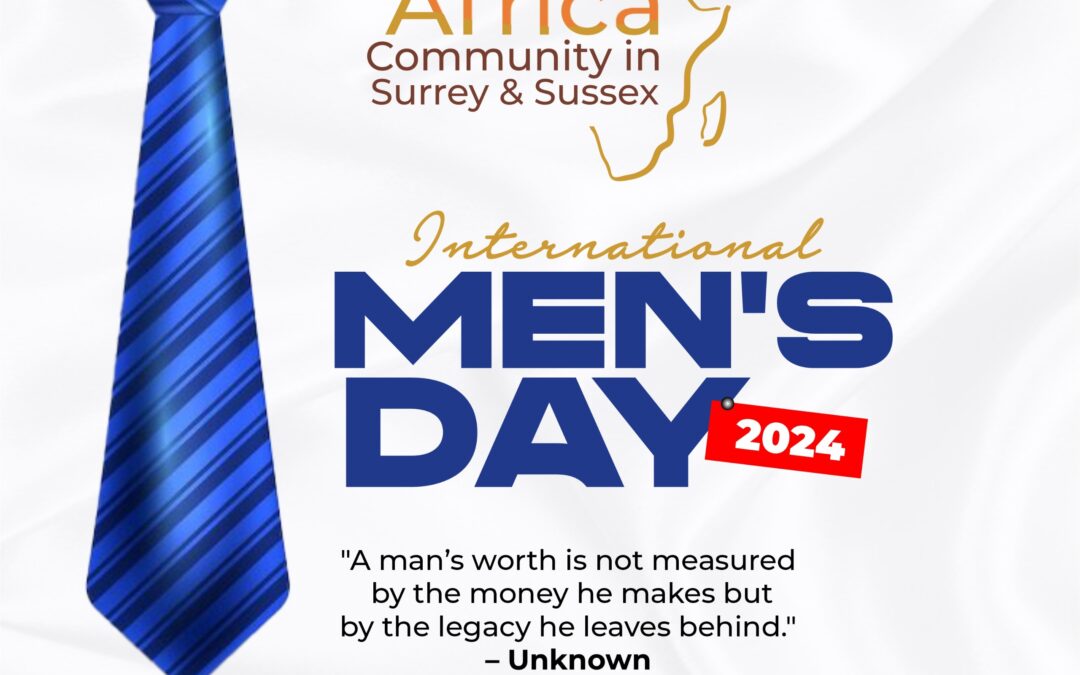Every year on November 19th, International Men’s Day provides a moment to reflect on the contributions, challenges, and responsibilities of men and boys worldwide. This year’s theme, “Positive Male Role Models,” resonates deeply, particularly in Africa, where the narrative surrounding masculinity is often complex, layered, and evolving.
From a young age, African boys are socialized into roles that often pressure them to display strength, leadership, and resilience—qualities celebrated in traditional masculinity. While these traits are valuable, they can also burden boys with unrealistic expectations, leaving little room for vulnerability or emotional expression.
Mental Health Stigma: Across Africa, societal norms often discourage men from expressing emotions or seeking help. This “silent suffering” contributes to rising mental health issues, yet access to care remains limited.
Economic Pressures: The expectation to be the sole provider in a family places significant stress on men. In a continent with high unemployment rates, many men struggle to meet societal expectations, leading to feelings of inadequacy.
Gender Role Conflicts: While women’s empowerment movements have gained momentum (and rightly so), men are sometimes left without guidance on how to adapt to these changing dynamics. Some struggle with finding their place in this evolving landscape.
Violence and Crime: In some regions, young boys are vulnerable to recruitment by gangs or militias, exposing them to cycles of violence and crime and perpetuating harmful stereotypes about masculinity.
Society’s rigid standards of what it means to “be a man” can be both limiting and damaging. These pressures often demand stoicism, dominance, and a suppression of emotions. African proverbs such as “A man must be strong” and “Men don’t cry” reinforce these norms, discouraging boys from embracing their full humanity. It perpetuates gender inequality, with men often feeling the need to assert dominance rather than nurture partnership and collaboration.
Amid these challenges, positive male role models play a crucial role in reshaping perceptions of masculinity. These are men who demonstrate that strength lies in vulnerability, leadership thrives on collaboration, and success stems from integrity and respect for all. To cultivate positive male role models and help men and boys thrive, we must address the root causes of the challenges they face. Here are some actionable steps:
Promote Mental Health Awareness: Encourage open conversations about mental health in schools, workplaces, and homes. Normalizing therapy and counselling can help men and boys feel supported in their struggles.
Redefine Masculinity: Challenge outdated notions of masculinity by celebrating men who are empathetic, collaborative, and emotionally intelligent. Campaigns, community forums, and media can all help reshape these narratives.
Provide Mentorship Programs: Community-driven mentorship initiatives can pair boys with positive male role models who inspire them to dream bigger and make ethical choices.
Celebrate Everyday Heroes: Shine a light on ordinary men who are making extraordinary differences in their families and communities. This could be a father prioritizing his children’s education or a young man volunteering at a local shelter.
Educate on Gender Equality: Foster a culture of mutual respect by educating boys on the importance of gender equality. This not only benefits women but also liberates men from the constraints of hyper-masculinity.
Happy International Men’s Day!

